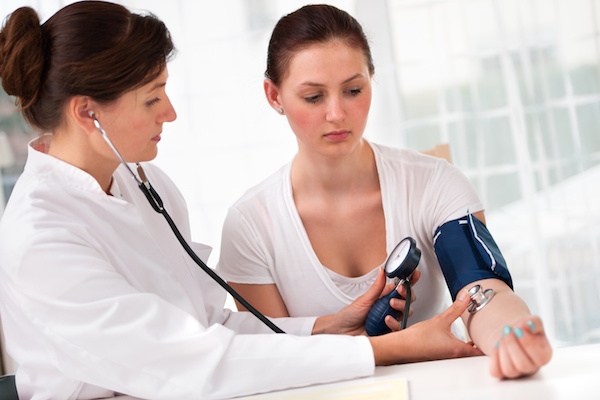
MONDAY, Oct. 14 (HealthDay News) — Exercise may boost a man’s sperm count, and therefore may improve a couple’s chances of conception, according to a new study.
In particular, men who lift weights or spend time working or exercising outdoors tended to have a higher-than-average sperm concentration in their semen, said study co-author Audrey Gaskins, a doctoral student at the Harvard School of Public Health.
“Men engaging in exercise for seven hours or more per week, essentially one hour a day, had 48 percent higher concentrations than men who were engaging in less than one hour per week,” Gaskins said.
The study will be presented this week at the joint meeting of the International Federation of Fertility Societies and the American Society for Reproductive Medicine, held in Boston.
Meanwhile, two other studies being released at the meeting found that neither coffee nor alcohol affects a man’s ability to conceive, contradicting concerns raised by earlier research.
“Even though caffeine and alcohol are generally considered a risk factor for decreased fertility, we saw no evidence of that,” said co-author Dr. Jorge Chavarro, an assistant professor of nutrition and epidemiology at the Harvard School of Public Health.
The exercise study focused on the male partners of couples who sought treatment at the Massachusetts General Hospital Fertility Center between 2006 and 2012. Ultimately, 137 men provided semen samples and filled out questionnaires regarding their regular levels of physical activity.
“When we looked overall, we found that men who engaged in levels of moderate to vigorous activity had higher levels of sperm concentration,” Gaskins said.
Further, the researchers found that particular types of pursuits boosted sperm counts more than others. “Outdoor activities and weightlifting seemed to be driving the association between moderate to vigorous activity and sperm concentration,” Gaskins said.
Men who spent more than an hour and a half each week engaging in physical activity outdoors had a 42 percent higher sperm concentration than those who spent no time outdoors, she said.
Weightlifters who spent two or more hours a week pumping iron had a 25 percent increase in sperm count compared to men who did not lift weights.
“Weightlifting has been shown to increase testosterone levels and improve insulin sensitivity,” Gaskins said. “Both of those have been related to higher sperm concentrations.”
Gaskins speculated that outdoor exposure to sunlight might boost fertility by increasing men’s levels of vitamin D.
The researchers found that one form of outdoor exercise actually can decrease male fertility, however. Men who rode a bicycle for more than an hour and a half each week had 34 percent lower sperm concentrations than men who did not bike.
Pressure placed against the scrotum by a bike seat or the increased scrotal temperatures caused by such pressure are possible explanations for this decrease in fertility, Gaskins said.
The study did not find any difference in the quality of sperm or how well it traveled in the body related to exercise.
Although the studies found associations between exercise levels and sperm concentration, it did not prove a cause-and-effect relationship.
Two other studies assessing male fertility looked at the potential impact of alcohol or caffeine.
One study reviewed the alcohol and caffeine intake of 166 male infertility patients, and found no link with the men’s sperm counts.
“We found that neither alcohol nor caffeine affected semen quality, which serves as a proxy for male fertility potential,” Chavarro said.
A second study by French researchers also looked at caffeine intake, but focused on the possibility that caffeine could do harm to the quality of sperm as well as the quantity.
The study, which involved nearly 4,500 men, reviewed semen volume and sperm counts, and performed genetic analysis to see if caffeine caused damage to sperm DNA.
The researchers reported that caffeine intake overall did not have a detrimental effect on semen. In particular, caffeine did not seem to cause any significant damage to the DNA carried by the sperm.
Until now, research into the effects of caffeine and alcohol on male fertility has been very mixed, Chavarro said.
“There have been many papers suggesting that alcohol and caffeine may be deleterious to fertility,” he said. “But there have been a few papers that say caffeine might help sperm motility, and helps sperm move faster with improved patterns.”
Because the new research was presented at a medical meeting, all data and conclusions should be viewed as preliminary until published in a peer-reviewed journal.
More information
For more about male infertility, visit the U.S. National Library of Medicine.
Copyright © 2026 HealthDay. All rights reserved.

